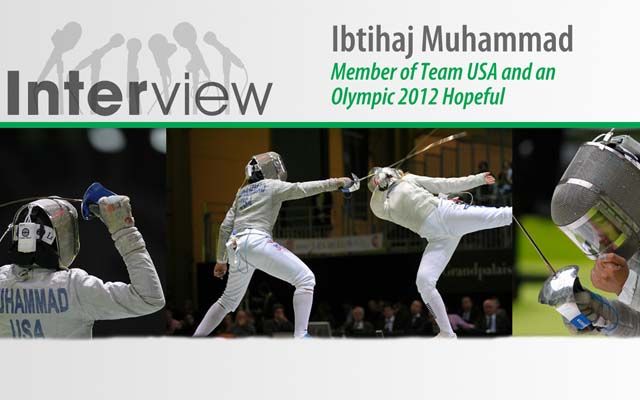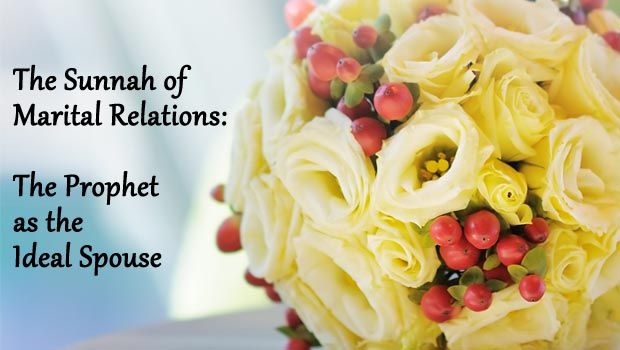My advice would be to reach for the stars. Never allow bias to your religion, ethnicity, or your gender to hinder you from reaching your dreams and doing what you love to do. Anything is possible with hard work, determination, and prayer.
Ibtihaj Muhammad is an accomplished fencer and the first Muslim woman to compete for the United States in international competition. She is a 3-time All-American and 2005 Junior Olympic Champion and holds a bronze medal from the 2011 World Fencing Championships. She has overcome odds as an ethnic and religious minority and currently stands as a strong contender for the Olympic team.
Q: Please share how you were first exposed to fencing and how your interest for it developed into a strong pursuit for excellence. Was there anyone who was part of your inspiration?
IM: I discovered fencing for the first time when I was about 12 years old as we drove past a fencing team in practice. I was attracted to it because I noticed the attire of the players and how they were fully clothed. It did not compromise my desire to dress modestly as a Muslim woman so it presented an opportunity for me where I felt I could be comfortable in my values and yet engage my heart in a physical sport. I was 13 years old when I joined a high school fencing team and from there followed this pursuit to where I am today.
Q: Not many of us have been in your position nor do we know what the process of training for an Olympic event is. Please describe how or what your schedule is like in training for an event like this.
IM: No doubt, training for an Olympic event requires rigorous training, commitment and discipline. As part of my preparation, I have to train 5 days per week and at least two times per day. In the morning, I work with my personal trainer and cross train using weights, agility training and running. In the afternoon, I head into New York City where I fence and work with my private fencing coach to build my expertise in the sport itself.
Q: What should a society offer inner city youth in order to help create and improve their opportunities to excel in what they do best?
IM: This is a critical endeavor yet very crucial. It is our responsibility to ensure the youth in our society are educated and taught to learn core values of responsibility and discipline to prevent them from being misguided by social ills. We need to invest in youth programs that offer constructive outlets for inner city youth which are pivotal in developing practical life skills that provide them with hope and opportunities where they can build and develop their talents. These efforts will aid in diverting them away from crime and feelings of frustration and help to create nonviolent communities.
Q: You have broken one of common stereotypical notions by excelling in a sport not typical to women, or furthermore, Muslim women. Is this achievement important to you and if so, what is your wish regarding people who continue to possess these stereotypes and misconceptions, especially regarding women and sports?
IM: I had the upbringing that helped me to be the person that I am today. Early on, my parents always encouraged my sisters and me to participate in sports. They felt that engaging in sports provided us with opportunities to be physically fit, learn time management and also to be active socially in a halal and productive way. I agree, that Muslim women may not be common in the sports arena but that is also partly due to many sports requiring them compromise on the modesty of their dress. In my case, I have found a sport that embraces my religious beliefs and my desire to wear hijab. My desire to wear hijab brought me to a sport that I love but probably would have never discovered otherwise if this principle was not important to me. So, inadvertently, I exposed a sport that gave me a foundation to become who I am and in turn, may have provided other Muslim women who wish to participate in a physical sport and also to those who doubt that Muslim women can have a role in it. I hope my story reminds Muslim youth that nothing should hinder them in their pursuit of reaching their dreams.
Q: You are now a Muslim women competing at the highest level of an athletic career. What kind of spotlight has this brought to you as a Muslim and your faith and what has been the reaction of other athletes and spectators to your current athletic status as a Muslim woman?
IM: My journey through my fencing career has undoubtedly brought a significant amount of attention to Muslim women in sports. Their has been an element of surprise but at the same time, Alhamdulillah, the spectators and the press alike have been very curious to know how my faith and my love for fencing have come to an intersect. It highlights how the hijab is not always an obstacle. It can actually be an instrument in guiding you to find a sport that you love as it has done in my life. I may have never discovered this skill of mine had it not been for these factors in my life so perhaps that is part that draws curiosity from others on my current disposition.
Q: During your athletic career, from beginning to present, have you experienced any type of discrimination or obstacles due to your being a Muslim woman?
IM: Of course, I cannot deny that I do face prejudice. However, I feel that comes simply with being an ethnic and religious minority in the US. People can be apprehensive when dealing with a Muslim American fencer, but I do not let that distract me or affect me or my goals. If I get discouraged, I have to continually remind myself that not only am I doing this for myself but Inshallah, this is also beneficial to those Muslims who join their pursuits after me. Hopefully, my story will help to pave their way at least in part.
Q: Were you waived at any point to consider giving up your hijab or your Islamic ideals as you ascended through your career? Did you ever feel tempted to give up the hijab so that you can perform without bias or hindrance?
IM: I can honestly say that there was not a single time where I considered giving up my hijab to make the situation easier. My hijab has become an integral part to who I am as a person. If fencing became a hindrance to my identity or in practicing Islam, I would not continue to fence.
Q: These days, most individuals, especially young girls, are raised to admire famous women who represent fame, glamour and physical beauty rather than hard earned achievements through talent, skill and hard work. Being a women who has earned a prestigious rank through the mastery of a skill and while being the example of modesty and good values, what would your message be to the youth around the country and other parts of the world?
IM: I agree, we can be distracted by icons that do not represent the best methods of achieving a higher rank. My advice would be to reach for the stars. Never allow bias to your religion, ethnicity, or your gender to hinder you from reaching your dreams and doing what you love to do. Anything is possible with hard work, determination, and prayer. Hold tight to these and you shall not fail with the will of Allah.
Q: What are your plans or hopes for the future?
IM: Inshallah, my current goal is to qualify for the Olympic team. Once I have completed my athletic career, I plan to apply for law school to study international law. I hope my career path ultimately leads me to experiences abroad where I can invest time in helping children in need.






